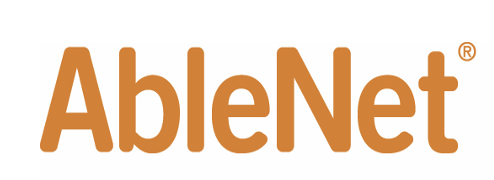2024 API Speaker Series
Asian Pacific Islander Speech-Language-Hearing Caucus
Raising Silent Voices: Navigating the Path for API Professionals in CSD
-
This presentation addresses the underrepresentation and systemic challenges faced by Asian Pacific Islander (API) professionals in Communication Sciences and Disorders (CSD). Through personal narratives and insights from research findings, this presentation uncovers the barriers of systemic racism, cultural biases, and microaggressions. It proposes strategies for overcoming these obstacles, including mentorship, social support, and advocacy for systemic change. The significance of embracing diversity within the field is highlighted, emphasizing how being both disciplinary and cultural experts can enrich clinical practice and improve outcomes for these culturally and linguistically diverse populations. Attendees are invited to engage in a Q&A session, fostering a collaborative dialogue on strategies to address highlighted issues.
MEET THE INSTRUCTORs
Jingyu Linna Jin, PhD, CCC-SLP, S-LP(C) is a researcher in the School of Nursing at the University of Washington. Her area of research is in Asian and Pacific Islander workforce diversity in speech-language pathology, and culturally responsive community outreach and engagement methods in research recruitment.
Financial Disclosures: Dr. Jin is an employee of University of Washington. She received an honorarium for this event.
Non-financial Disclosures: No relevant non-financial disclosures related to the contents of this presentation.
Dr. Li-Rong Lilly Cheng is the Director of the Chinese Cultural Center at San Diego State University. She served as Professor in the School of Speech, Language, and Hearing Sciences and Executive Director of Chinese Studies Institute at SDSU. Professor Cheng served as a member of the board of trustees of the Campanile Foundation of SDSU. She is the past chair of the Multicultural Issues Board for the American Speech, Language and Hearing Association (ASHA) and the chair of Education Committee for the International Association of Logopedics and Phoniatrics (IALP). She is a Fellow of ASHA and received the Honors of ASHA. She served as the past president of IALP (International Association of Logopedics and Phoniatrics). She was the founder of the Asian Pacific Islander Caucus of ASHA. She has dedicated her life to education with a focus on the children, women, underserved and unserved. She has provided professional and humanitarian assistance and resources to individuals, schools, clinics and groups with special needs including deafness, autism spectrum disorders, speech and language disorders and disability across the lifespan across the globe.
Financial Disclosures: Dr. Cheng is an employee of San Diego State University. She received an honorarium for this event.
Non-financial Disclosures: No relevant non-financial disclosures related to the contents of this presentation.
Course format
This is a live webinar event that will take place May 8th, 5:00-6:30 PM, PST. Upon registration, you will receive a Zoom link in your email for the event. For those unable to attend the live event and wish to earn ASHA CEUs, a recording of the presentation will be made available to registrants through May 31st. This course will be available for .15 ASHA CEUs. It is not possible to earn partial ASHA CEUs for this course.
Closed captioning and ASL Interpretation will be provided.
Course agenda:
Introduction (5 min)
Speaker Background (5 min)
Introduction to Underrepresentation (15 min)
Challenges and Barriers (20 min)
Strategies for Overcoming Barriers (15 min)
Recognizing the Value of Diversity (10 min)
Q&A and Discussion (20 min)
Closing Remarks (2 min)
To qualify for ASHA CEUs, participants must:
Attend the live webinar event for the full duration OR watch the full recording if unable to attend the live event
Complete a 2-question quiz (short answer)
Complete the course feedback survey
Learning Outcomes & Objectives
Participants will:
Identify the systemic challenges and barriers that Asian Pacific Islander communication sciences and disorders (CSD) professionals face in graduate training and clinical practice, including issues related to systemic racism, cultural biases, and underrepresentation.
Identify effective strategies and best practices for promoting diversity, equity, and inclusion within CSD, such as mentorship programs, advocacy efforts, and inclusive hiring practices that support API professionals and other underrepresented groups.
Describe the dual role of cultural and clinical components at play in clinical practice.
The API Speech-Language-Hearing Caucus received financial support from AbleNet to pay for speaker fee and the Credit Institute ASHA CE cooperating agreement fee




